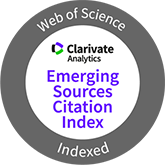Intereses cognoscitivos y praxis social en Arqueología de la Arquitectura
DOI:
https://doi.org/10.3989/arq.arqt.2002.6Keywords:
Building Archaeology, University, Building Heritage Management, Preservation/knowledge, Basque Country experienceAbstract
The paper comprises two sections. In the first we reflect on the crisis of the traditional academic model, and the powerful impact represented by reorganization of archaeological activities in the context of the new autonomous administrations in the State of Spain.This is the context in which Building Archaeology must search for its place and offer sound alternatives. In order to attain this purpose,we propose to go beyond the avowed dichotomy between historical knowledge and restoration interests and we advocate for the need of putting in place control routines which guarantee respect for all relevant dimensions of building heritage and the full implication of Building Archaeology in its knowledge, management and diffusion. On the second part, and on the basis of concrete examples,we discuss the application of these ideas in the Basque country experience, experience which relies on the following: a) Normalization of research instruments. b) Incorporation of Building Archaeology to University curriculae. C) Creation of research programmes concerned with knowledge, management and diffusion of building heritage.
Downloads
Downloads
Published
How to Cite
Issue
Section
License
Copyright (c) 2002 Consejo Superior de Investigaciones Científicas (CSIC) - Universidad del País Vasco/Euskal Herriko Unibertsitatea (UPV/EHU)

This work is licensed under a Creative Commons Attribution 4.0 International License.
© CSIC. © UPV/EHU. Manuscripts published in both the print and online versions of this journal are the property of Consejo Superior de Investigaciones Científicas and Universidad del País Vasco/Euskal Herriko Unibertsitatea, and quoting this source is a requirement for any partial or full reproduction.
All contents of this electronic edition, except where otherwise noted, are distributed under a Creative Commons Attribution 4.0 International (CC BY 4.0) licence. You may read here the basic information and the legal text of the licence. The indication of the CC BY 4.0 licence must be expressly stated in this way when necessary.
Self-archiving in repositories, personal webpages or similar, of any version other than the final version of the work produced by the publisher, is not allowed.














